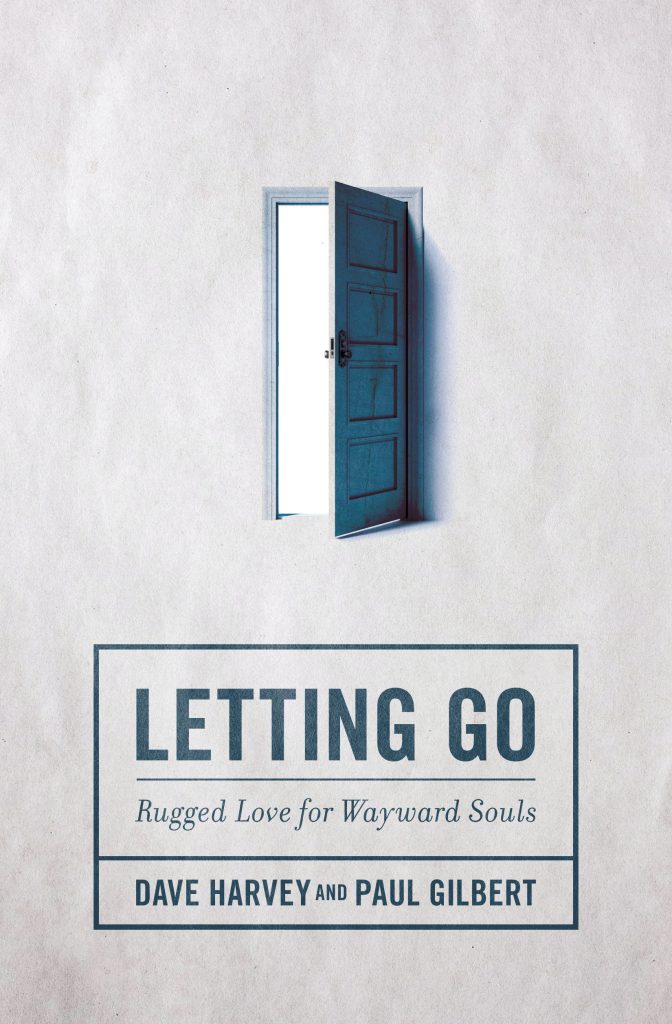⏱️ Estimated Reading Time: 6 min read
CHRIST’S SUFFERING AND WHY?
“Why?” Intractable, inscrutable, unyielding—why? is a cross that wayward-lovers must carry. It’s one thing to be soul-weary and know the cause. Sam’s kid has an illness, and it drains him. Carol lost a loved one, and she’s up all night grieving. The cause may be life-altering and earth-shattering, but at least they know what it is. However, a mysterious kind of desperation is inflicted upon the soul when a loved one goes rogue. We ask, “How did we get here? What did we do wrong? What should we do now? Why is this happening to us?”
Occasionally these questions receive clear answers, but often they do not.
Job could relate. Unable to understand why he was suffering, Job cried, “For he crushes me with a tempest and multiplies my wounds without cause” (Job 9:17). Like many of us do when we are faced with piercing affliction, Job looked up at the heavens. He felt alone and said, “I cry out to you, God, but you do not answer” (Job 30:20 NIV).
Multiplied wounds without cause. If you have loved a wayward person, you get it. When someone you love goes wayward and you don’t know the cause, the suffering and fatigue seem irrational and arbitrary. We ride the curved back of the question mark straight into a wall of exhaustion. One woman who watched her husband deteriorate from Godward to wayward said, “You pound on ‘why’ because you think the answer reveals the mysterious virus caus- ing the problems. You think if I had obeyed God this wouldn’t be happening. You ask relentless questions about yourself, your mar- riage, and look for what you may have missed. It ends with you collapsed into a heap, exhausted and defeated by the question!”
For some, “Why?” is the most wearisome question on earth.
But according to the author of Hebrews, Christ’s suffering does not leave why unanswered. “Consider him who endured from sinners such hostility against himself, so that you may not grow weary or fainthearted” (12:3). It’s an odd prescription for someone who’s suffering: Be comforted by someone who suffered worst. But this is not merely like taking a guy with pneumonia into the cancer ward to provide him with some perspective on how bad things could really be. It’s more than that.
The cross helps make sense of the weariness of why.
Christ’s suffering at the hands of wayward sinners reminds us that gigantic good can come from the dreadfully bad things that exhaust us. Let us explain. Imagine for a moment that you are standing before the cross while the Son of Man hangs sus- pended between heaven and earth. Flogged beyond recognition, exhausted beyond comprehension, a mass of bloodied flesh nailed to a tree. Jesus gasps for air, practically suffocating from the torment. It is utterly horrific.
Imagine further that you had been present for the prior three years of Christ’s earthly ministry. What did you see? You were astounded by his power to heal; you marveled over his supernatu- ral works; you delighted at his wit and wisdom; you were convicted
by the marks of his righteousness. Everyone knew they were in the presence of a phenom. No living being had ever seen or heard anyone like him.
But now . . . THIS! You stand before the cross bewildered, unreservedly flummoxed, totally stupefied! After all, the one who is so godly, so wise, so beautiful, so other-worldly is dying a gruesome death. The most perfect being ever born of a woman— the Son of Man, the Great I Am, the Savior—is being murdered by wicked men. He is dying. Soon he will be gone forever. If you could somehow find the words to convey your horror, they would likely escape through your clenched teeth as, “Why?” With a tone that’s equal parts anger, confusion, and despair, you cry, “Is this how God deals with the righteous? Is THIS how God rewards those who follow him wholeheartedly? Is THIS justice?”
“It’s insane,” you say. “How can good ever come of this?”
But wait! In less than a weekend, this spectacle of suffering will reveal a great miracle. The cross and resurrection reveal, once and for all, the immeasurable, unfathomable love God has for the wayward. At the cross, amid the blood, anger, and hos- tility, it all seems so arbitrary, so useless, so wasted. But what we really behold is the subversive work of divine salvation where God’s justice is vindicated, sin’s penalty is paid, and God’s enemy is decisively vanquished. The midday darkness settling over the land is actually the dawn of a new day of power.
Here’s our point: When you’re looking at Jesus on the cross, things look pretty bad. The elusive why remains unanswered. You see only the irrational hostility, the misery of hopelessness, the agony of defeat—another hero whose young life is being snuffed out. Life seems so empty.
But the appearance is not the substance.
In the drama of Golgotha, God is not merely the backstage director ensuring everything goes according to script. He is the drama’s author, existing entirely outside of the production. He knows the beginning and the end. He wrote every part played and determined every word spoken. And his intentions are always loving and good.
In the end, Job realized this, too. God was not absent. He wasn’t asleep on the job. He answered Job’s cries by reminding him that he is God, that he is not surprised, and that he is in con- trol. The good news is that God wrote your family drama, whatever it may be. And his intentions have always been loving and good! We see the trees; God sees the forest. Does your situation look pretty bad? God wants to plant some encouragement deep within your heart. The cross stands as an eternal reminder that there’s always, always an inconceivable good at work even in the worst events of your life. The author says so, and he wrote the script.
Taken from Letting Go by Dave Harvey and Paul Gilbert. Copyright © 2016 by Dave Harvey and Paul Gilbert Used by permission of Zondervan. www.zondervan.com.



